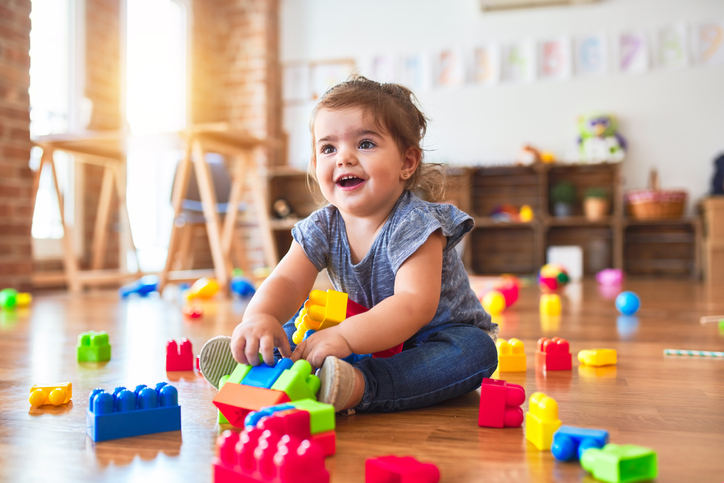Child Safety Week, which this year runs from Monday 6th-Sunday 12th June, is an annual community education campaign run by the Child Accident Prevention Trust (CAPT). The campaign helps families build confidence and skills in managing the real risks to children’s safety. This year’s theme is Safety In Mind.
East Sussex has a much higher rate of hospital admissions due to unintentional and deliberate injuries in children than the rest of England. During 2021, on average ten children under 5 attended an East Sussex A&E every month due to a burn or scald.
While we often think of accidents as events that are unintended and therefore avoidable, this is not entirely true. Accidents are often predictable events and, with the right knowledge, can be prevented. It is all about understanding what the risks are at each stage of a child’s development and implementing simple changes along the way.
Safe from burns
A small child’s skin can burn easily as it’s so thin. Here’s how to prevent serious burns:
Hot drinks
- Hot drinks can stay hot enough to scald a small child even after 15 minutes
- Place hot drinks in ‘safe zones’ in your house where your child can’t reach and grab it
- Avoid picking your hot drink up while still carrying or holding your child
Cooking
- Try to keep your child out of the kitchen when you’re cooking, if at all possible. Otherwise keep them in a highchair away from the cooker and hot surfaces
- Push kettles to the back of the worktop
- Use the back rings of a cooker first
Baths
- Put cold water in the bath first and then top up with hot – rather than the other way round
- Test the temperature of the bath with your elbow
- Don’t leave your child alone in the bathroom in case they fiddle with the hot tap
Prevent poisoning
Small children are curious and will often be caught putting things in their mouth. This can be extremely dangerous when that thing is poisonous – such as washing tablets or painkillers. Everyday painkillers are the most common way for young children to be poisoned. Don’t let this happen and follow these tips:
Laundry products
- Move products to a high up or lockable cupboard rather than beside the washing machine for convenience
- Put products away and out of reach as soon as you have finished using them
- When shopping, look out for products with a bittering agent like Bitrex. It tastes so horrible that children will instantly spit it out.
Cleaning products
- Same goes for cleaning products – move to a high up or lockable cupboard
- Don’t rely on safety caps… they slow children down but are not entirely childproof
- Find products with a bittering agent like Bitrex, which tastes so unpleasant that children will spit it out
- Don’t pour cleaning products into other bottles, such as drinks bottles. This can easily confuse children.
Painkillers
- Don’t cast painkillers to the side on a bedside table or leave them in a handbag on the floor – keep them out of reach of curious children at all times
- Keep all medicines out of sight and reach, ideally in a high up or lockable cupboard
Safe around roads
Roads can be extremely dangerous places and it’s important to teach your children road safety from a young age. Here are our top tips for ensuring safety around roads:
In the car
- Remember that it is the law for children to have the correct car seat until they are 12 years old or 135cm tall (whichever comes first)
- Ensure your car seat is the right fit for your child and for your car – not all seats fit all cars. Click here for some more tips on car seat safety.
- Electric windows, choking and fire hazards in cars have all proved fatal for small children – never leave your child alone in the car
Cycling
- Helmets save lives – get your child into the habit of wearing theirs when they cycle. Lead by example and make sure to wear yours when cycling.
- If possible, get your child enrolled in some cycle training. Many schools offer courses to help children gain practical skills. Confidence is key!
Pedestrians
- Get your child into the habit of holding your hand near roads or use walking reins
- Teach the Green Cross Code from around age 5… stop, look, listen, and think
- Children copy what they see, so do not step into the road without checking for traffic first
- Older children can be fixated on their phones, which can be extremely dangerous when crossing roads. Remind them not to talk or text on their phones while crossing the road, and to be careful when listening to music near roads.
At the beach
As the weather warms up and we start spending more time at the beach, make sure to follow these tips on how to prevent accidents and disaster taking place:
- Inflatables can easily be swept out to sea when there are high winds, so keep children off inflatables when the orange windsock is flying and always keep an eye on them
- Teach your children to swim between the two coloured red and yellow flags – these mark the areas patrolled by lifeguards
- Drowning is the third highest cause of accidental death in children in the UK. Children should always be supervised while in the water. There is also a big difference between pool swimming and open water swimming, and children should also be taught about the dangers of flows, currents, and uneven surfaces.
- Keep children out of the midday heat and make sure they cover up with suitable clothing, are wearing a high enough SPF sunscreen, and are regularly drinking water. Children under 6 months should be kept out of direct strong sunlight.
- Sunburn is a severe health risk, and you can still get sunburnt on a cloudy day. Check UV levels: anything three or above is strong enough to cause skin damage. Find out more about the dangers of UV on our health in this short video.
More resources
The CAPT website is jam-packed with factsheets and resources for parents and practitioners, and information on how to keep children safe. The CAPT Facebook page also regularly posts safety information and animations, which you can share with your own friends and family.
Help spread the word about Child Safety Week and get involved. Together, we can build confidence and resilience, and help keep children safe from serious harm.




